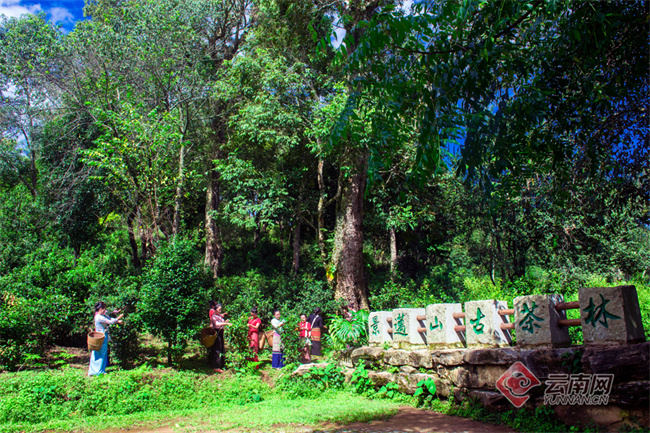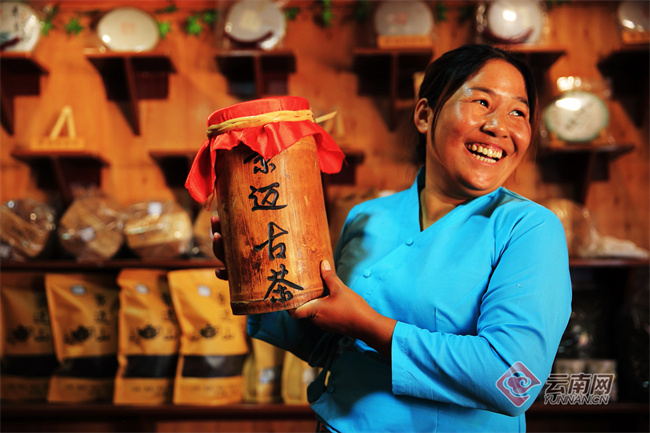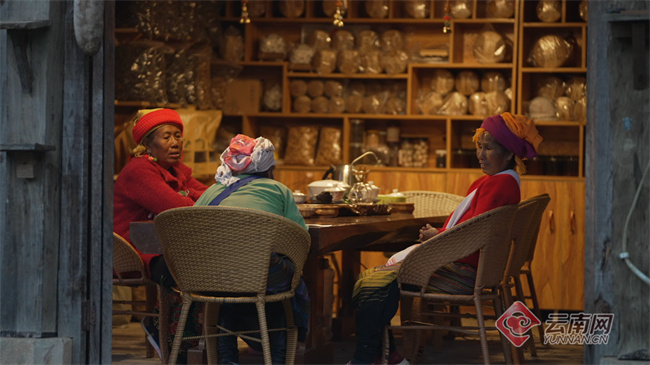Man and nature exist in harmony at Mt. Jingmai

The enter of Mt. Jingmai's ancient tea forest. (Photo by Su Kun)

Workers in one of the tea factories around Mt. Jingmai. (Photo by Su Kun)
Yunnan province is the birthplace of global tea varieties, and Pu’er city is one of the core tea-producing regions in Yunnan. The city is also the origin of the Tea-Horse Ancient Road and has significant influence on the world tea culture. With a long history of producing Pu’er tea, Pu’er has its uniqueness.
Mt. Jingmai always comes to people’s mind when talking about Pu’er tea. Located in Lancang county of Pu’er city, Mt. Jingmai is one of China's six major tea mountains and the most significant ancient tea mountain in Yunnan's Puer tea region. The ancient tea forest of Mt. Jingmai is the best-preserved and oldest human-cultivated ancient tea forest in the world, often referred to as the Natural Tea Tree Museum.

A tea planter shows tea product made of tea harvest from Mt. Jingmai. (Photo by Yunnan Net)
Over a thousand years, ancestors of various ethnic groups such as the Bulang and Dai discovered and cultivated this ancient tea garden, and villages gradually flourished here. According to historical records, tea cultivation here has a history of about 2,000 years. The entire garden covers an area of 28,000 mu (about18.67 km2), and the majority of ancient tea trees are over a hundred years old.
Villages were built in the forest, and tea trees were cultivated around them. The millennium-old tradition of under-tree tea planting here not only effectively protects biodiversity but also supports the living of the locals.
Tea leaves are only harvested in spring and autumn, a rule that villagers have adhered to for generations. What's more, the villagers have been growing tea using methods passed down by their ancestors. Weeding is done by hand or sickle.

The scenery of Mt. Jingmai (Photo by Yunnan Net)
Camphor trees are planted in the tea gardens to deter pests, and beneficial insects are nurtured to control pests. Farm chemicals are not used at all. This environmentally friendly cultivation and management model protects the forest which has thrived for thousands of years.

Bulang folks in Wengji village sell tea. (Photo by Yunnan Net)
The mountain nourishes the tea trees so that the tea nurtures the people back. With generations’ hard work in protecting the mountain, a cup of Jingmai ancient tree tea today is a witness to the harmonious coexistence of humans and nature.
Source: Yunnan Net; trans-editing by Wang Yunya








